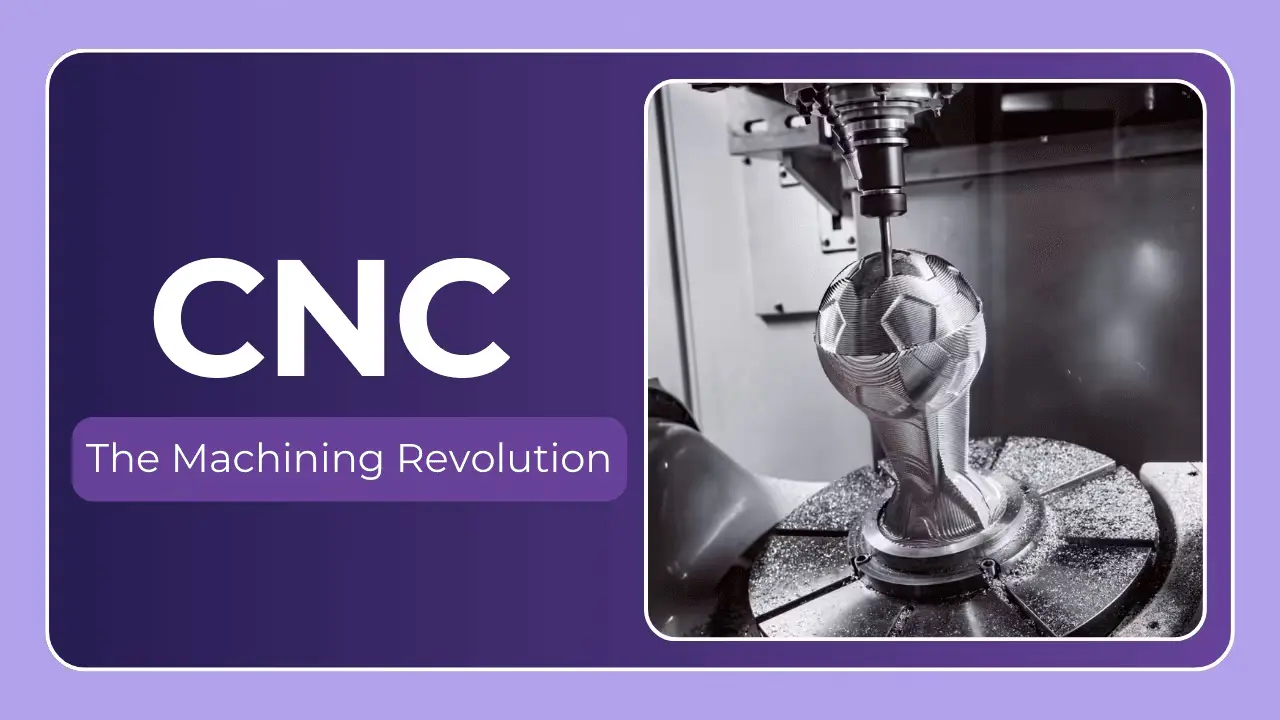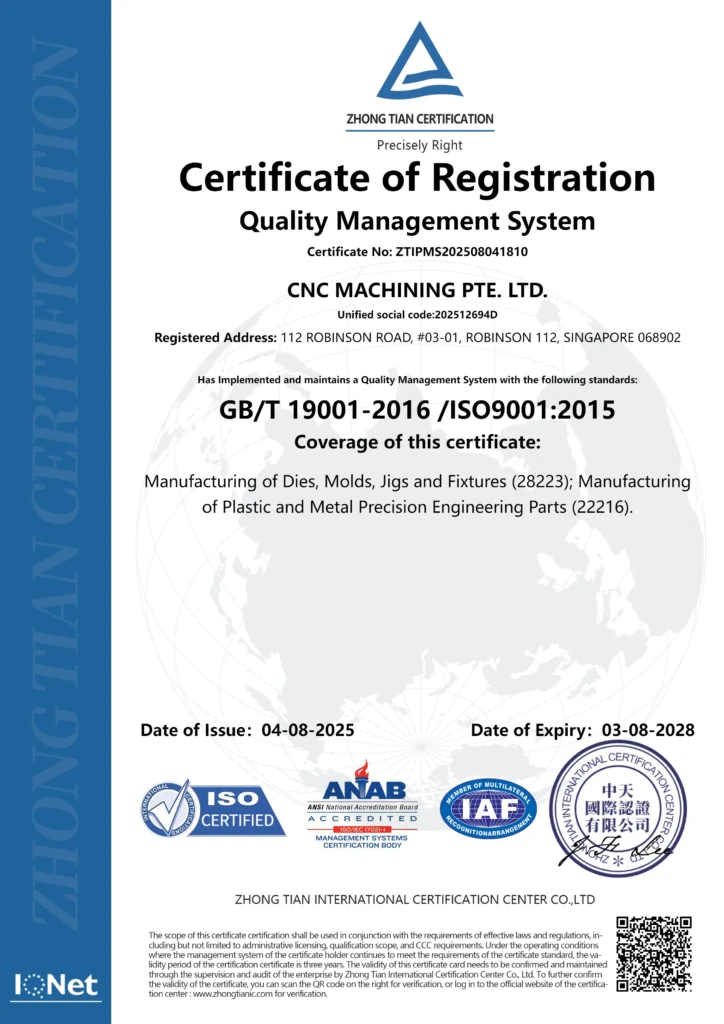The Definitive Guide to Precision CNC Machining Services
In today’s fast-paced manufacturing landscape, achieving pinpoint accuracy, complex geometries, and rapid turnaround times is crucial for success. While various manufacturing processes exist, Precision CNC (Computer Numerical Control) machining has emerged as a cornerstone for producing high-quality, customized parts across a vast range of industries. This article delves into the world of precision CNC machining services, exploring its benefits, processes, materials, applications, and what to look for in a provider. We’ll also highlight how a company like CNC MACHINING PTE. LTD in Singapore is leading the way with their advanced five-axis capabilities.
What is Precision CNC Machining?
Unlike traditional machining which relies heavily on manual operation, CNC machining utilizes pre-programmed computer software to dictate the movement of factory tools. These tools, typically cutting bits, interact with a workpiece to remove material and create a desired shape. ‘Precision’ in this context speaks to the tight tolerances achievable – sometimes down to microns – and the overall quality of the final product. It’s not simply about “cutting metal”; it’s about controlled, repeatable, and accurate material removal.
Think of it like this: a skilled craftsman can produce beautiful woodwork with hand tools. But a CNC machine, programmed by a skilled operator, can consistently replicate that same piece, or even a much more intricate design, with unwavering precision and efficiency.
Why Choose CNC Machining? The Core Benefits
The advantages of precision CNC machining are substantial and drive its widespread adoption:
- High Accuracy & Tight Tolerances: CNC machining excels at producing parts with extremely tight tolerances, often crucial in industries like aerospace, medical, and electronics.
- Complex Geometries: Machining complex shapes, internal features, and intricate designs is significantly easier and more cost-effective with CNC compared to manual methods. Five-axis machines, like those offered by CNC MACHINING PTE. LTD, expand this capability even further (more on that later).
- Repeatability: Once a program is perfected, CNC machining provides consistent, repeatable results, ensuring uniformity across large production runs. This reduces scrap and improves overall quality control.
- Material Versatility: CNC machining can work with a diverse array of materials, including metals (aluminum, stainless steel, titanium, brass, copper), plastics, composites, and even wood.
- Scalability: From prototyping a single part to producing thousands, CNC machining adapts easily to varying production volumes.
- Reduced Labor Costs: While skilled programmers and operators are necessary, CNC machining automates much of the manufacturing process, reducing reliance on manual labor.
- Faster Turnaround Times: Automated processes and efficient programming often lead to faster production cycles.
The CNC Machining Process: A Breakdown
The journey from concept to finished part typically involves these stages:
- Design & CAD Modeling: The process begins with a 3D model created using Computer-Aided Design (CAD) software.
- CAM Programming: The CAD model is then translated into a set of instructions the CNC machine can understand using Computer-Aided Manufacturing (CAM) software. This process defines the toolpaths, speeds, feeds, and other parameters.
- Material Selection: Choosing the right material is critical. Factors considered include strength, weight, corrosion resistance, and cost.
- Setup & Fixturing: The raw material is securely clamped or fixtured in the CNC machine. Proper fixturing is essential for accuracy and preventing vibrations.
- Machining Operation: The CNC machine executes the programmed instructions, removing material layer by layer.
- Quality Control & Inspection: Once machining is complete, the part undergoes rigorous inspection using tools like calipers, micrometers, Coordinate Measuring Machines (CMMs), and visual inspection to ensure it meets specifications.
- Post-Processing (Optional): Depending on the application, the part may require additional finishing processes like deburring, polishing, anodizing, painting, or heat treatment.
Understanding CNC Machine Types – Focusing on 5-Axis Capability
Numerous variations of CNC machines cater to specific needs. Here’s a quick overview:
- 3-Axis CNC Machines: The most common type, operating along the X, Y, and Z axes. Suitable for basic milling and turning operations.
- 4-Axis CNC Machines: Adds a rotational axis (typically around the A-axis), allowing for machining on multiple sides of a workpiece without manual re-fixturing.
- 5-Axis CNC Machines: The most advanced type, utilizing two rotational axes in addition to the X, Y, and Z axes. This provides unparalleled flexibility for complex geometries and significantly reduces setup time.
Why is 5-Axis Machining Important?
Five-axis machining, like that offered by CNC MACHINING PTE. LTD, allows for:
- Undercutting & Complex Contours: Achieving features that are impossible or extremely difficult with 3 or 4-axis machines.
- Improved Surface Finish: By optimizing tool orientation, 5-axis machining can produce smoother surfaces and minimize the need for secondary finishing operations.
- Reduced Setup Time: The ability to machine multiple sides of a part in a single setup saves time and reduces the risk of errors introduced during re-fixturing.
- Higher Accuracy: Minimized tool deflection and improved rigidity contribute to greater overall accuracy.
Materials Commonly Used in CNC Machining
The versatility of CNC machining extends to a wide range of materials. Here are some notable examples, often supported by services like those offered by CNC MACHINING PTE. LTD:
| Material | Common Applications | Key Properties |
|---|---|---|
| Aluminum (6061-T6, 7075-T6) | Aerospace, Automotive, Electronics | Lightweight, high strength-to-weight ratio, corrosion resistance |
| Stainless Steel (304, 316) | Medical, Food Processing, Marine | Corrosion resistance, durability, hygienic |
| Titanium (Grade 5) | Aerospace, Medical Implants, High-Performance Racing | Exceptional strength-to-weight ratio, corrosion resistance, biocompatibility |
| Brass (C36000) | Plumbing, Electrical Components, Decorative Items | Machinability, conductivity, corrosion resistance |
| Copper (C11000) | Electrical Components, Heat Exchangers | High conductivity, corrosion resistance |
| ABS, Polycarbonate, Delrin | Prototypes, Housings, Consumer Products | Lightweight, cost-effective, good impact resistance |
Applications Across Industries
Precision CNC machining serves a multitude of industries:
- Aerospace: Critical components like engine parts, structural components, and landing gear.
- Medical: Surgical instruments, implants, and diagnostic equipment. Demanding stringent tolerances and biocompatibility.
- Automotive: Prototype parts, engine components, and tooling.
- Electronics: Connectors, housings, and heat sinks.
- Oil & Gas: Valves, fittings, and downhole tools requiring high durability and corrosion resistance.
- Industrial Machinery: Gears, shafts, and custom components.
Choosing the Right CNC Machining Partner
Selecting the right CNC machining service provider is paramount. Consider these factors:
- Capabilities: Do they offer the necessary machining processes (milling, turning, drilling, tapping, etc.) and materials expertise?
- Equipment: Do they have the latest technology, including 5-axis machines, to handle your project’s complexity?
- Quality Control: What quality assurance processes do they have in place? (ISO certifications are a plus)
- Turnaround Time: Can they meet your project deadlines?
- Cost: Obtain quotes from multiple providers and compare pricing, but don’t solely focus on the lowest price – quality and reliability are vital.
- Communication & Project Management: A responsive and collaborative partner is essential for seamless project execution.
Conclusion: Partnering for Precision – CNC MACHINING PTE. LTD.
Precision CNC machining is far more than just material removal; it’s a sophisticated manufacturing solution that enables innovation across countless industries. Its ability to deliver accuracy, complexity, and scalability consistently sets it apart.
For businesses seeking a reliable and capable partner in Singapore, CNC MACHINING PTE. LTD stands out. Their investment in advanced five-axis CNC machining equipment, comprehensive post-processing services, and commitment to rapid prototyping and custom solutions make them a first-choice provider for demanding applications. Whether you need a single prototype or a large production run, their expertise and dedication to quality can help you bring your designs to life with precision and efficiency. Don’t hesitate to explore their capabilities and customize your precision parts now at the best price!




